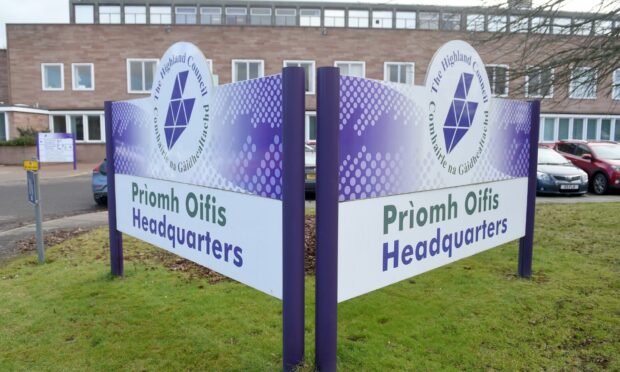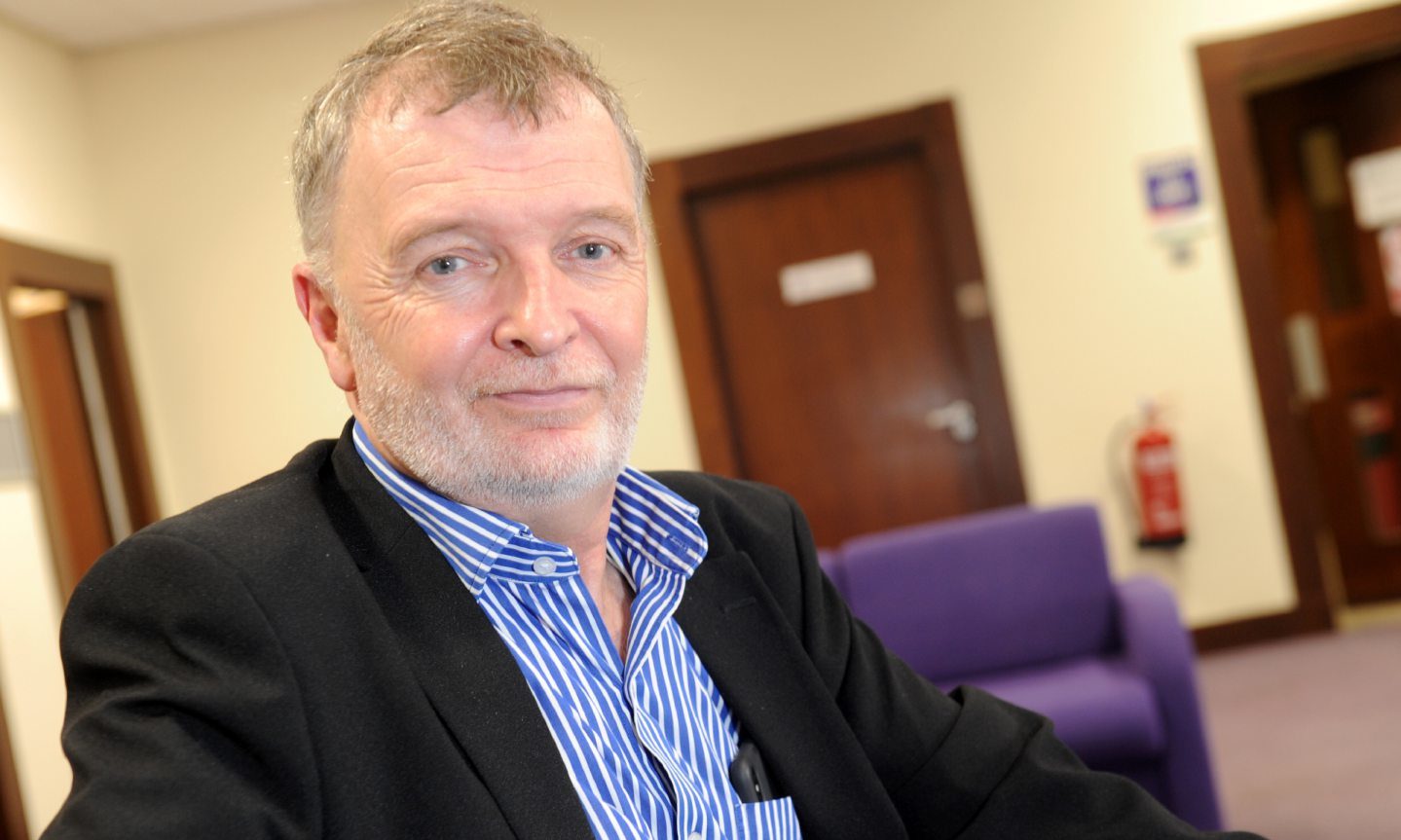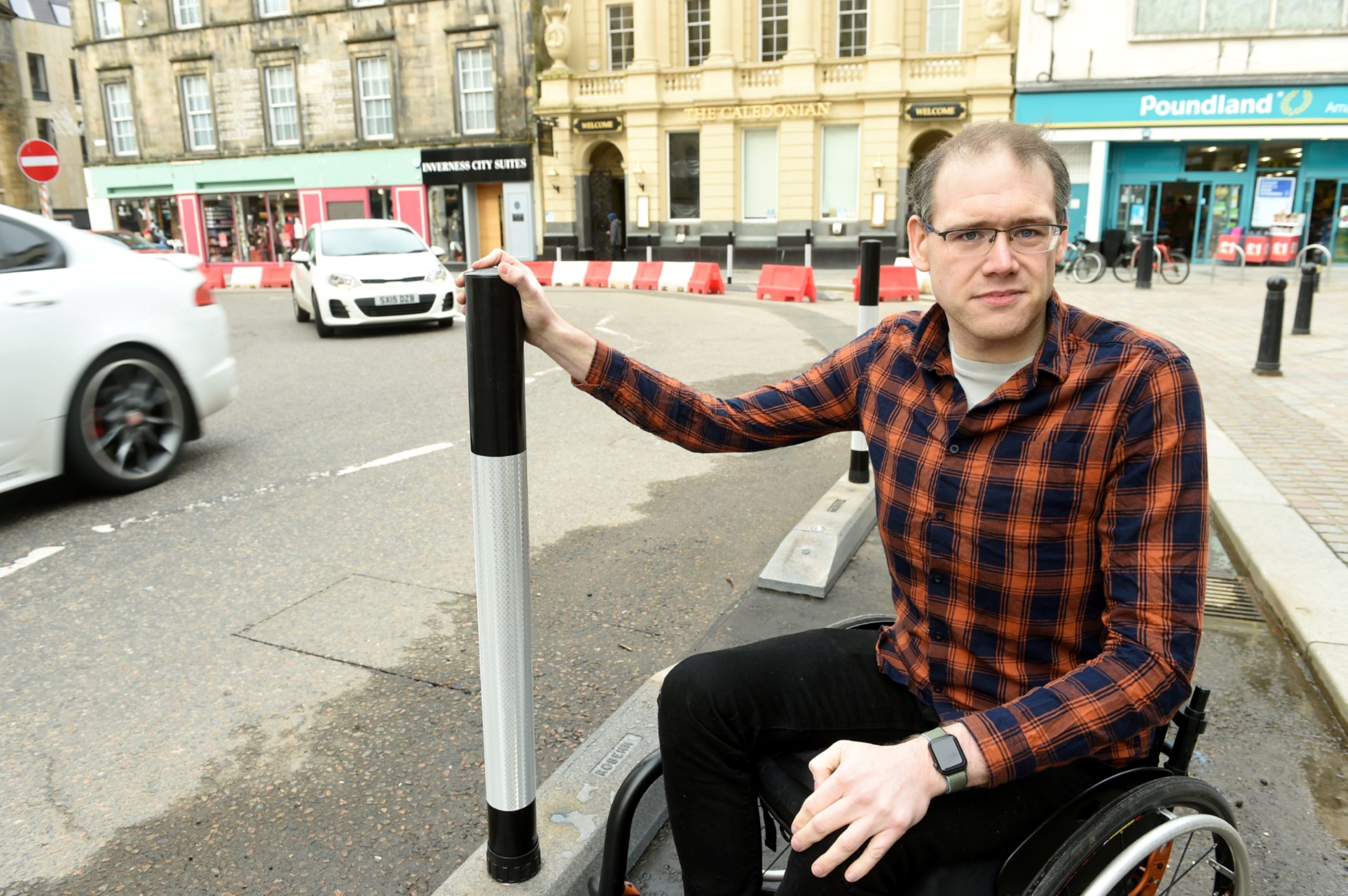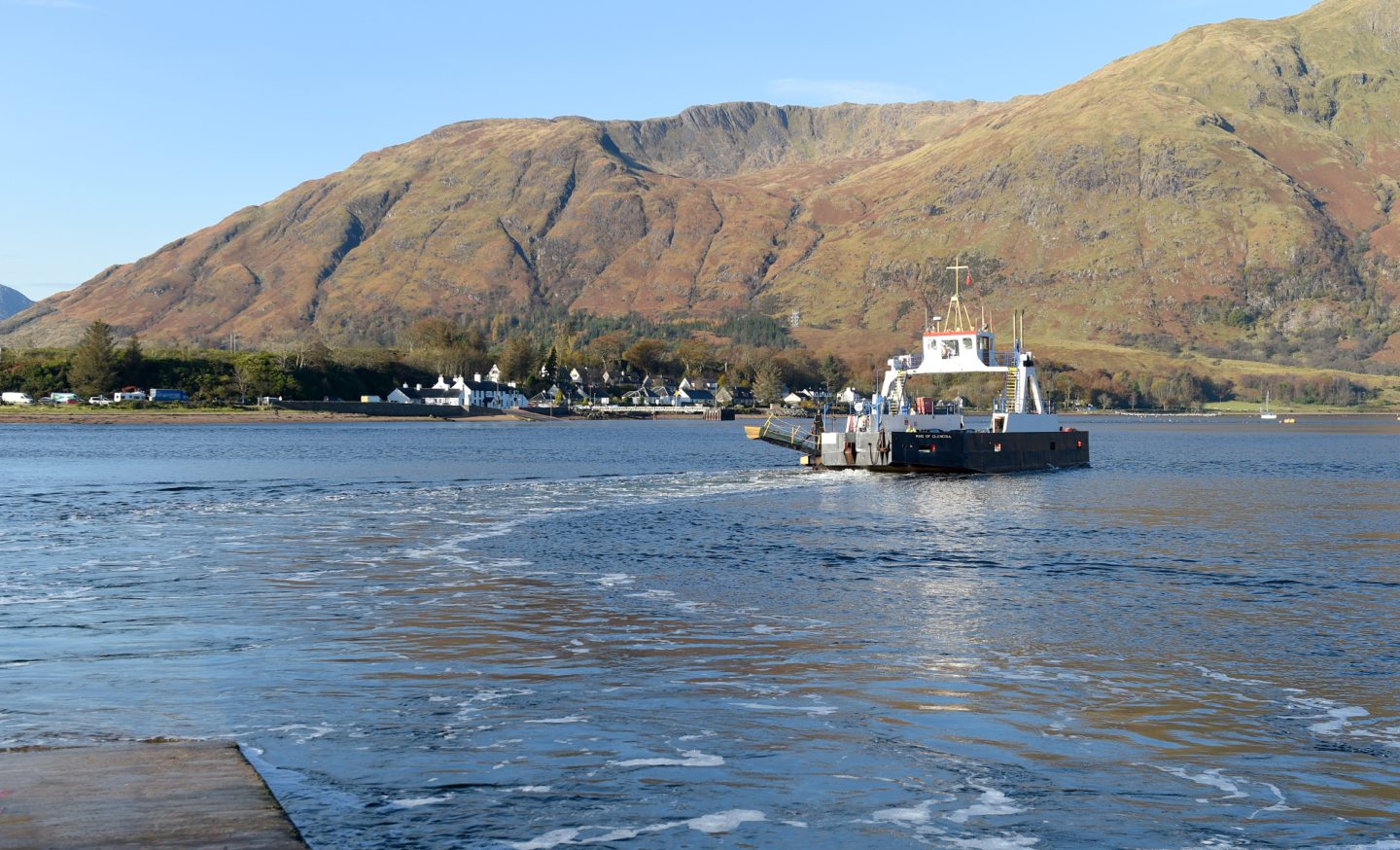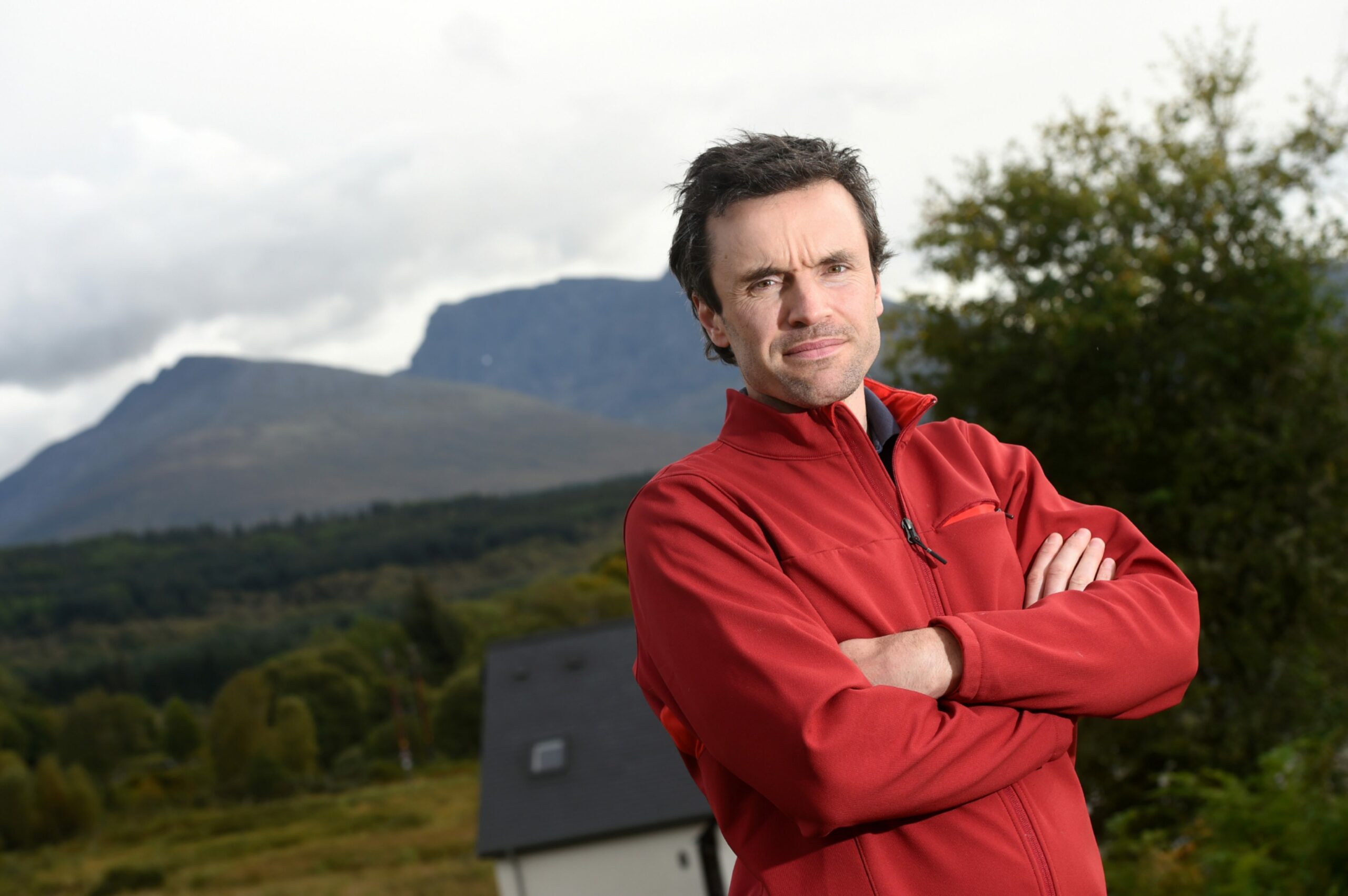Members of the Highland Council have today agreed a plan to address a bleak financial outlook.
The medium term financial plan set out before councillors this morning was a bumper report, containing various scenario plans, a refreshed capital programme, proposed budget savings and details of a community loan fund scheme.
Debate around the report was good tempered for the most part, but opinions differed regarding the administration’s approach to balancing the books.
Central scenario has become best case scenario
Presenting the report to council, deputy leader Alasdair Christie explained that the council had undertaken detailed scenario planning.
In past modelling, the ‘central scenario’ was for a £9m budget gap. However the council now believes this gap is the best it can hope for, and presented a potential budget gap ranging from £9m to £35.4m.
The reasons given for this more bleak outlook are the so-called ‘hidden harms’ of Covid, specifically health, social and economic.
As a result of these, council officers believe additional pay costs could amount to £10.5m, national insurance contributions £3.4m and general pressures £5m.
Controversially, the council has also planned for a potentially poor grant settlement from the Scottish Government, assuming a 3% cut, at a cost of £7.5m.
The report also includes details of £1.6m in savings, and offers up a refreshed capital programme in recognition that capital and revenue budgets are closer now than ever before.
This programme includes 10 new school builds, and while the budget for these could hike up, members were pleased to see progress being made on its large school estate.
Summing up the report, Mr Christie said: “This needs to be planned carefully. It needs to be inclusive. It needs to be predictive and reactive to change. It needs to be innovative. And we need to complete it.”
‘Surprise budget’
Though Mr Christie called it an inclusive budget and highlighted collaboration with the opposition SNP group, the leader of the conservative and unionist group called it a “surprise budget”.
Referring to the revenue savings proposals including a potential £218,000 cut to High Life Highland, reduced amenities budgets and increased Corran Ferry fees, councillor Andrew Jarvie said that only five of the 21 savings proposals had any detail attached.
Mr Jarvie further claimed to have been shut out of discussions until an email was sent by Mr Christie 10 days ago.
“Yet again, this council springs significant cuts on communities without any consultation, care, or detail,” said Mr Jarvie.
“Not only is it sneaky and underhand to only give 10 days notice this was even on the table, but such absurd cuts and fee increases are completely and utterly unjustifiable when this council is hoarding £40m in cash [reserves].”
Speaking after the meeting, Mr Christie said he contacted Mr Jarvie on three occasions to discuss the papers and received no response.
“At times when decisions need to be made and matters discussed it seems surprising that there is this unwillingness to become involved in the process,” he said.
He repeated an invitation for Mr Jarvie to attend meetings on 12th and 19th November, adding “Whilst I cannot force any group to meet to discuss and work collaboratively I would reiterate our request to engage as we move forward.”
A healthy reserves balance
The SNP group also highlighted the council’s cash reserves, with councillor Derek Louden saying he “wouldn’t go along” with the administration’s assumption of a poor settlement from the Scottish Government.
“We have to plan sensibly but I wouldn’t go along with that, based on financial support received from the Scottish Government last year,” said Mr Louden.
“This allowed council to build its reserves to unprecedented levels, build a comfort zone and a level of safety. It belies the idea that the Scottish Government is holding money. It has done a fantastic job passing it on to give council room to manoeuvre and I’m sure they’ll do everything they can in the current year.”
Mr Louden called on the council to work harder to generate income from commercial activities and to back more community-led initiatives.
One means of driving income proposed in the report was a hike in fares on the Corran Ferry.
This was met with outrage by local member councillor Andrew Baxter, who said he was ‘disappointed’ and repeated earlier claims that Lochaber residents are contributing a disproportionate amount to council coffers in comparison with other areas.
‘Tinkering around the edges’
Administration members emphasised that the cuts tabled are sensible responses to the budget gap, and again called on more funding for rural authorities.
Councillor Ben Thompson, in what will be his last council meeting before his formal resignation, said Highland Council has by far the smallest revenue budget in Scotland compared with its large asset base.
“This will continue until councillors unite,” he said.
“It’s always going to trip us up.”
Mr Thompson said the government makes a political choice to support larger authorities with urban deprivation ahead of small, rural authorities.
His views were echoed by councillor Matthew Reiss, who added: “If we can’t sort out the allocation formula we’re just tinkering around the edges.”
Voting confusion
Moving to the vote, Mr Jarvie tabled a motion to remove the proposed budget savings altogether. There followed some confusion, as council convenor Bill Lobban claimed that Mr Jarvie’s motion was in fact an amendment, because Mr Christie had tabled the report as the administration’s motion.
It was later clarified that this was not the case, and Mr Christie offered an apology to Mr Jarvie.
Mr Jarvie stated after the meeting: “This council cannot just say a budget is ‘collaborative’, they are a million miles away from it when they can’t even hold a fair vote by abusing the process – let alone actually make anyone else aware or including them.”
Mr Jarvie’s amendment was defeated nevertheless.
Councillor Blair Allan also tabled an amendment, which proposed to scrap the fee increase for pre-paid tickets on the Corran Ferry and make up the savings by increasing fares for drive-up passengers.
This was accepted by council.
